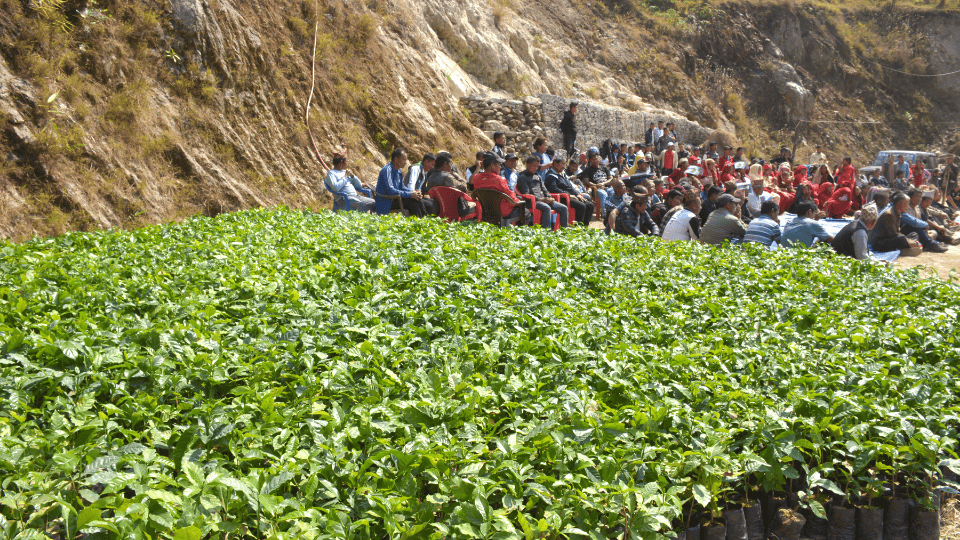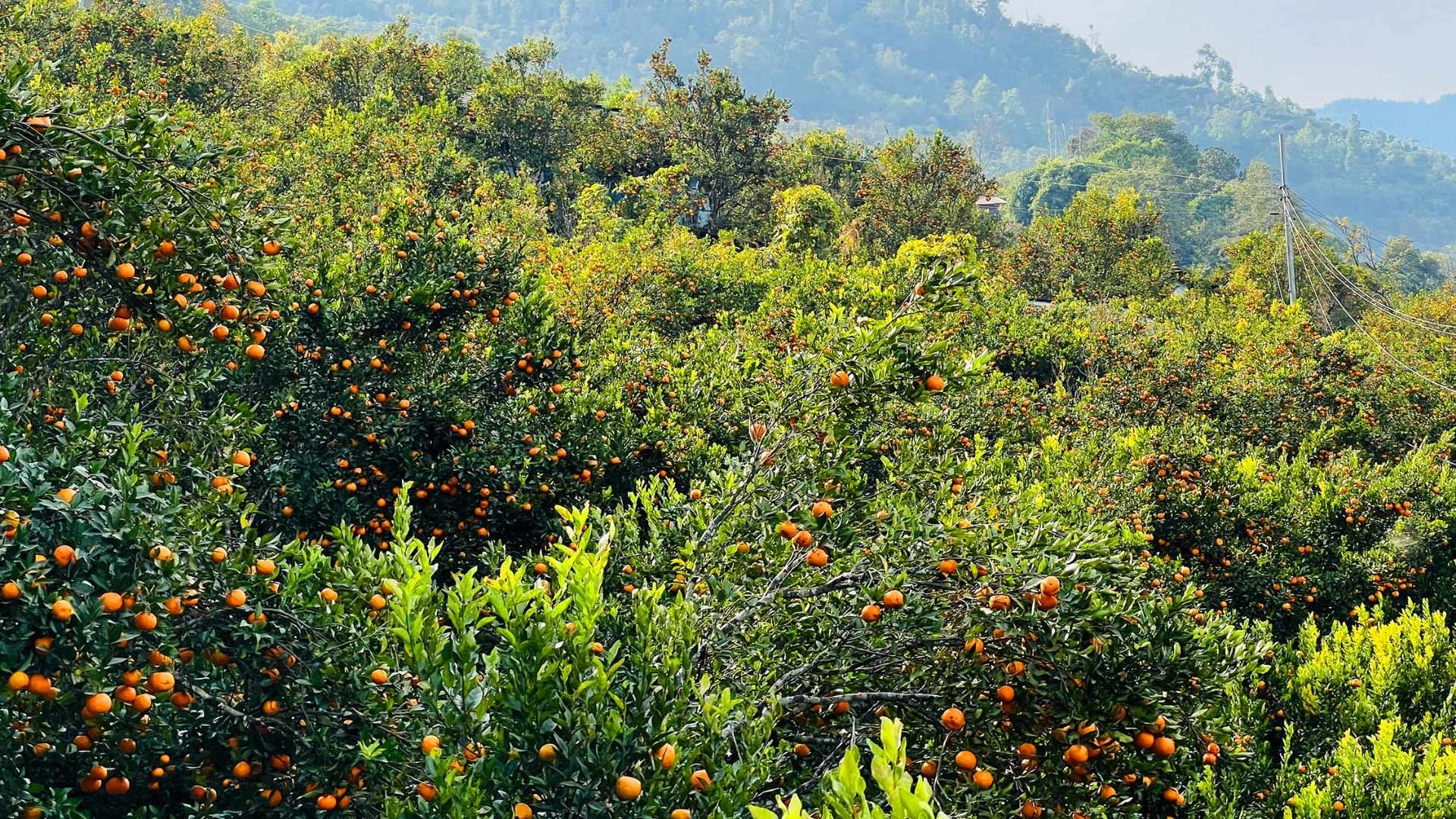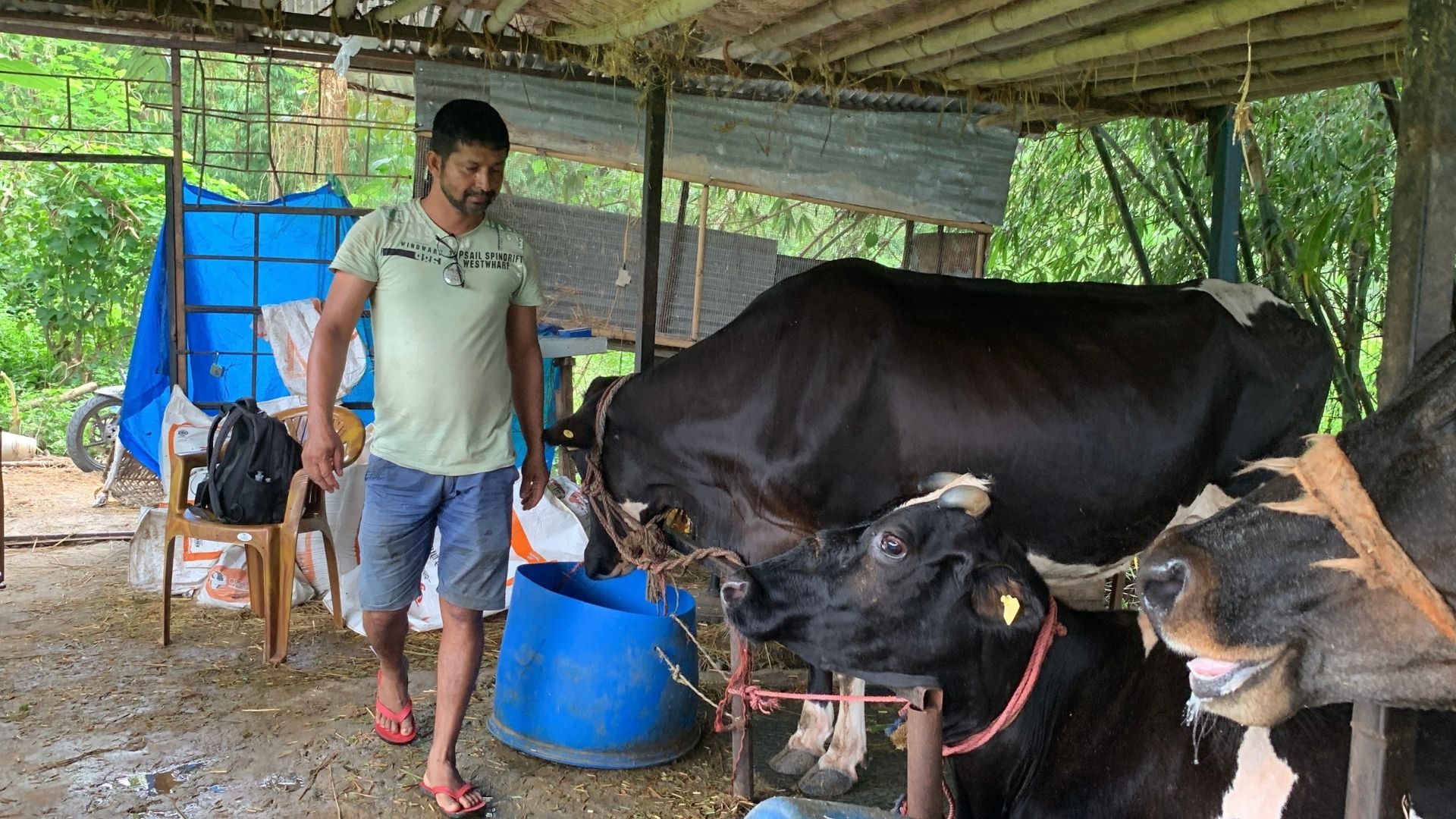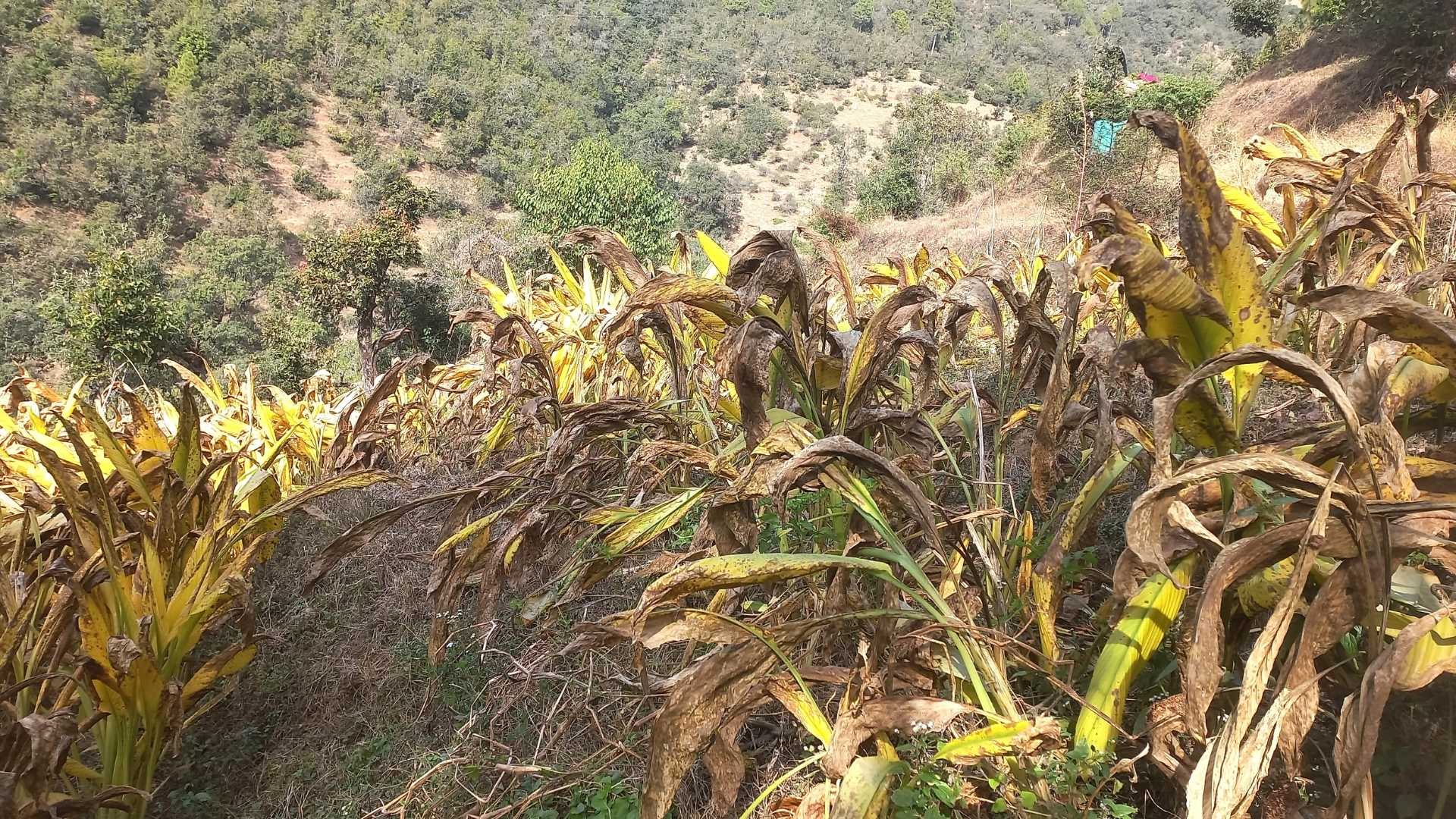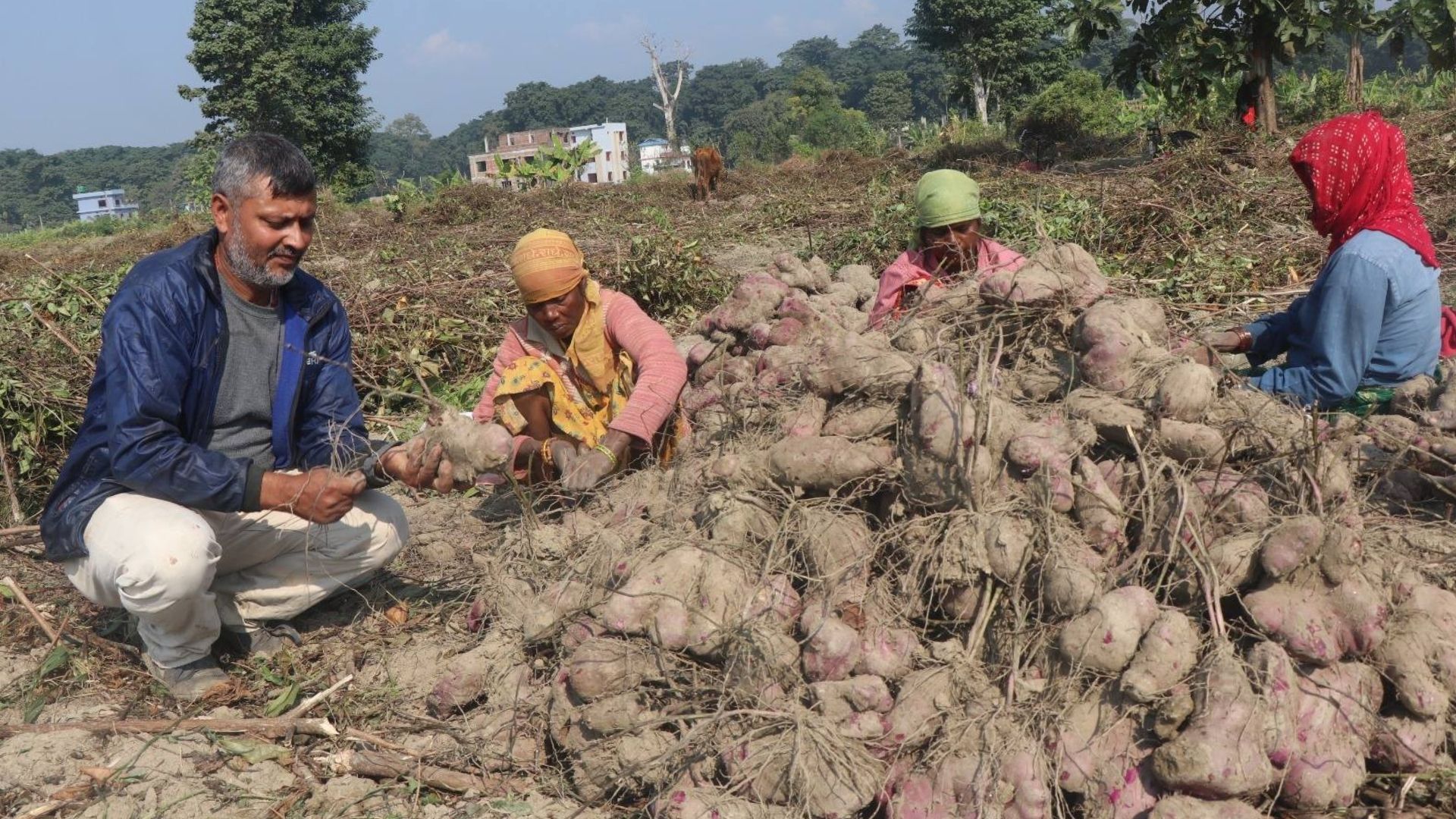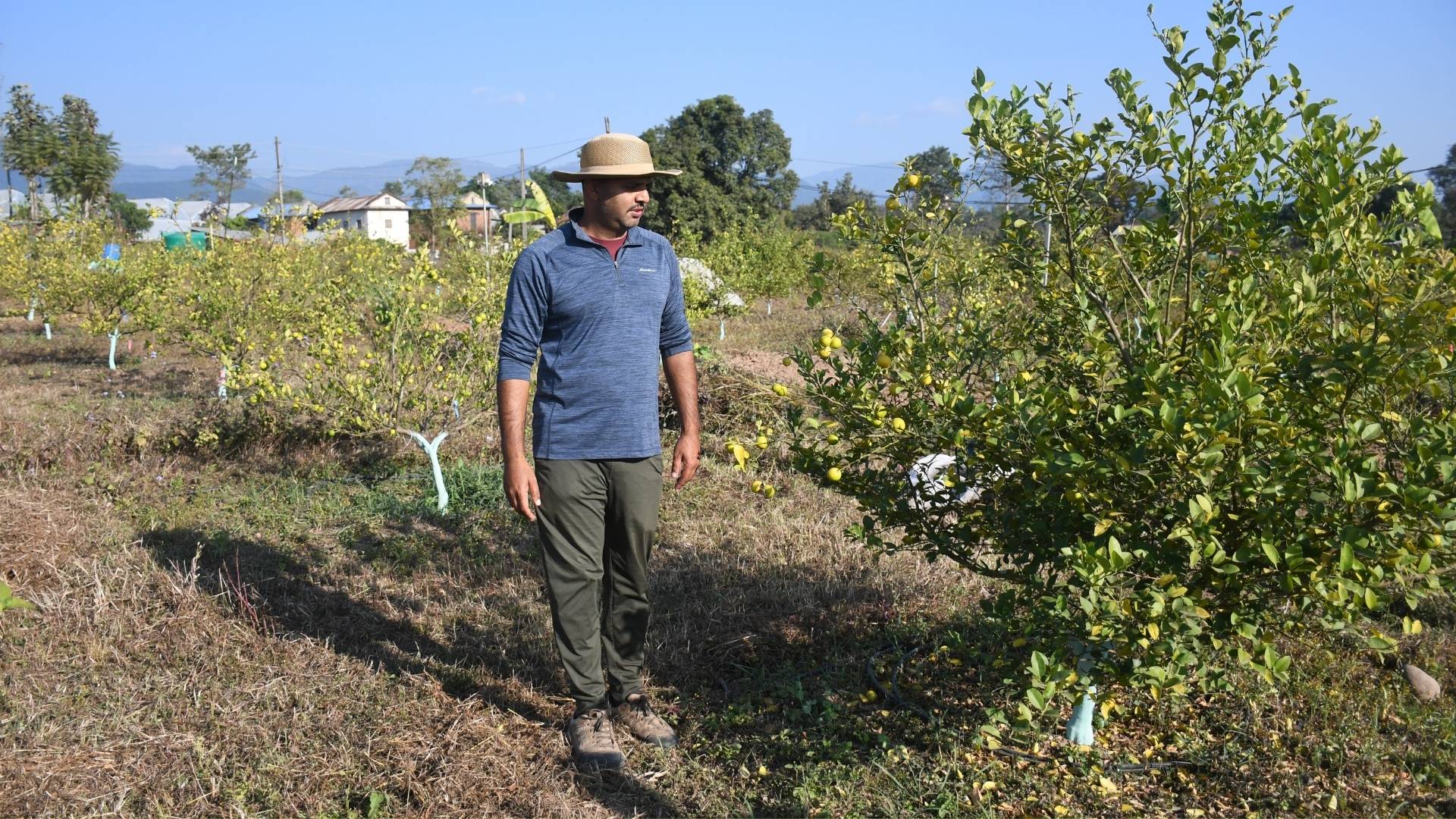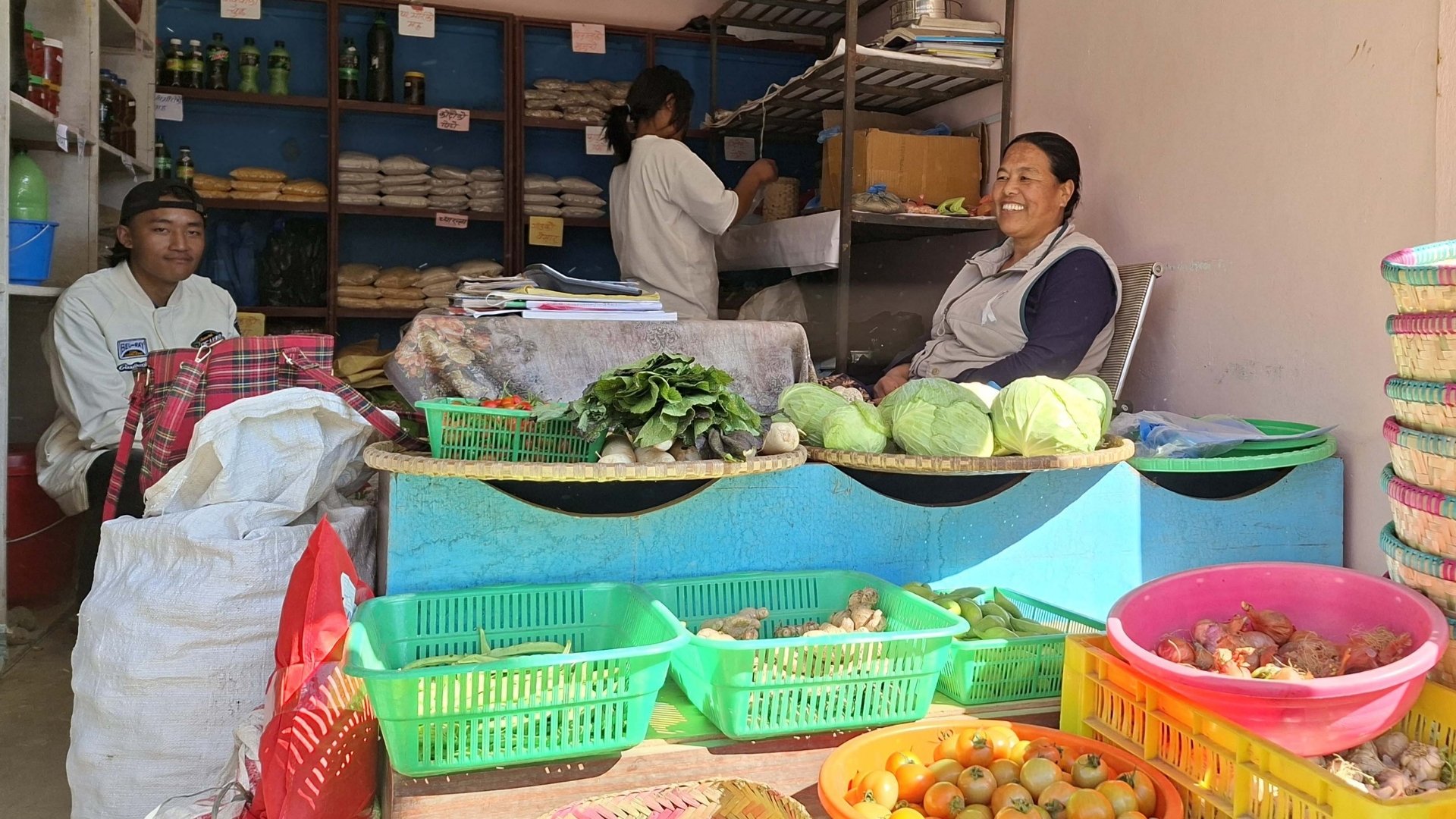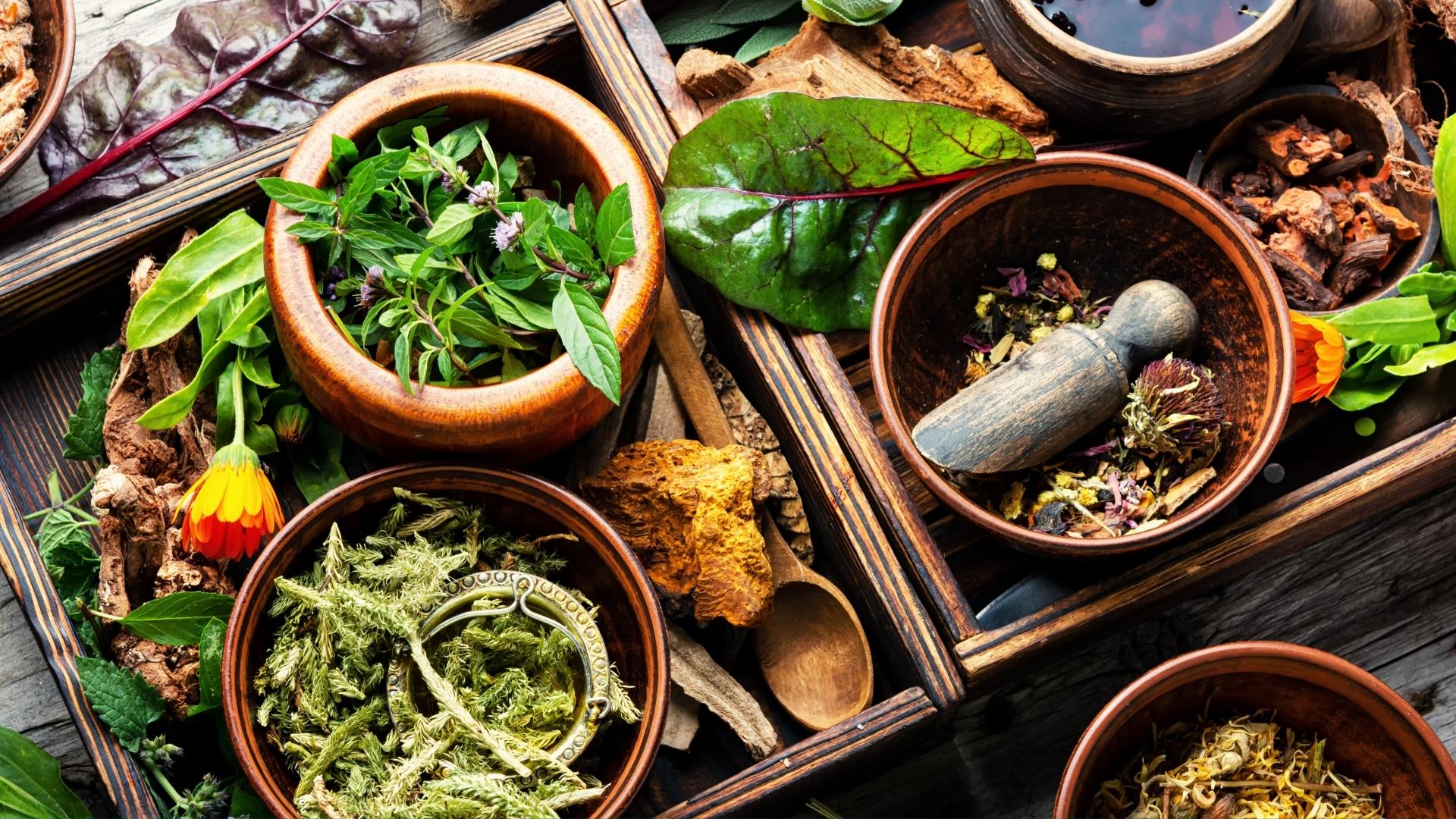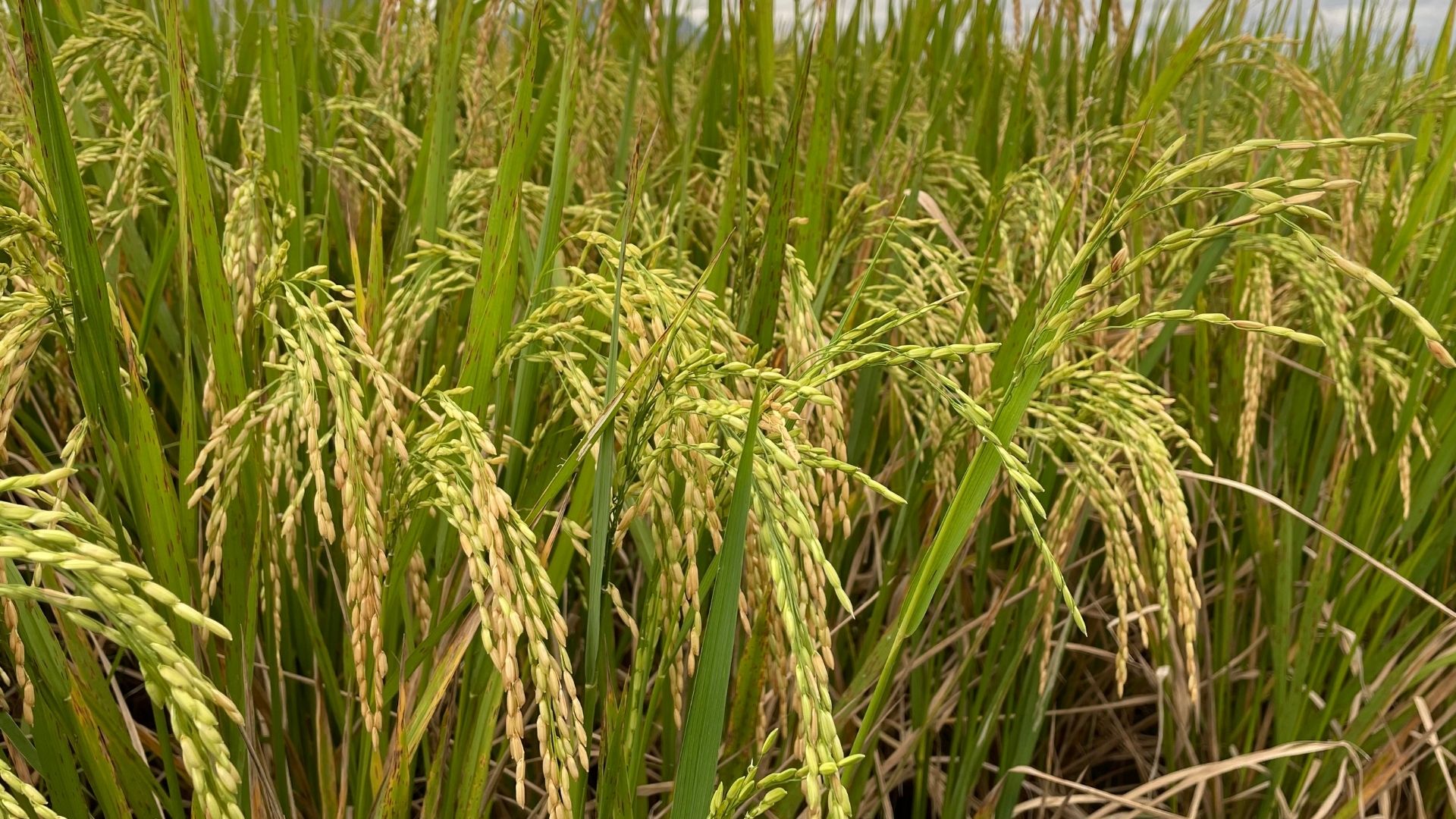Neeraj Pulami of Mahabharat Rural Municipality-5 has been engaged in coffee farming for three years now having switched from corn to coffee farming due to higher income potential.
Pulami started farming by planting 600 coffee plants three years ago and is currently creating space throughout his field in preparation for planting new plants. “This year alone, I harvested 400 kg of coffee,” he said. “Some have been sold, some are left.”
Together with his brothers, they have planted coffee in 18 ropanis farmland. He said that the coffee is sold for Rs 130 per kg when raw and up to Rs 830 after being cleaned and dried.
Another farmer from the same village, Lal Bahadur Moktan, who started small-scale coffee farming about 10 years ago, has also started prioritizing coffee farming due to better earnings than corn farming. According to Moktan, production levels can be enhanced if the local government arranges for irrigation.
Neeraj and Lal Bahadur are not the only ones. Most of the farmers here are attracted to coffee farming. Local Kanchha Blon says that they do not have to go to the market to sell the coffee they produce, and traders come to buy it at home, which has also helped in their livelihood. He said that since maize used to be their only source of food, coffee has become everyone’s choice over maize as they can earn cash from it.
Jagat Bahadur and Shankhlal Thokar of Mahabharat Rural Municipality-4, Koltar Lamagaun, have been earning more than Rs. 1.5 million annually by cultivating coffee.
Ward No. 5 Ward Chairman Bijay Rana Magar said that after farmers started showing interest in coffee, they promoted coffee production as a campaign. He mentioned that, since irrigation is necessary, the living standards of farmers here could improve with support from the rural municipality and the state government.
Mahabharat Small Farmers Agricultural Cooperative Society Limited has been providing necessary training, processing machines, drying wire mesh, tarpaulins and other materials for coffee, said the chairman of the organization Hasta Bahadur Darlami.
Mahabharat Rural Municipality Chairman Kanchhalal Jimba said that since coffee farming is a viable means of supporting farmers in their economic growth, the municipality has been commercializing farming with subsidies. The primary needs of the people in the hilly region are roads and electricity. By addressing these, they have been focusing on coffee production to improve the standard of living, distributing seedlings, processing equipment, and other essential materials.
To increase coffee farming, the municipality has launched a campaign namely “Rs 20 for every coffee plantation”, which is a government subsidy of Rs 20 per plant supervised by the agriculture department. He stated that, under the same scheme, the “Community-based One Ward, One Product” program is also in implementation since last year in collaboration with the Bagmati Province government to enhance the effectiveness of the coffee production initiative in Ward No. 5, which is in
Chief of the Agricultural Development Office Kul Prasad Dawadi said that since last year, they have been additionally providing training on coffee processing technology since this year to increase production quality and productivity in the coffee production sector. He informed that the coffee production work in Mahabharat Rural Municipality has been advanced to the implementation stage by signing an agreement and is in the implementation stage in Khanikhola Rural Municipality.
The Agricultural Office has stated that it will distribute 40,000 coffee seedlings this year alone and emphasize on quality coffee production by making farming technology-friendly. For that, the office chief Dawadi said that they are training farmers on pulping machines, tarpaulins for drying, and solving the problems of diseases.
This year, the use of technology and the distribution of materials for coffee processing in that ward is being carried out with a cost-sharing arrangement: Rs 3 million from the provincial government, Rs 5 million from the rural municipality, and Rs 10 million from the farmers.


